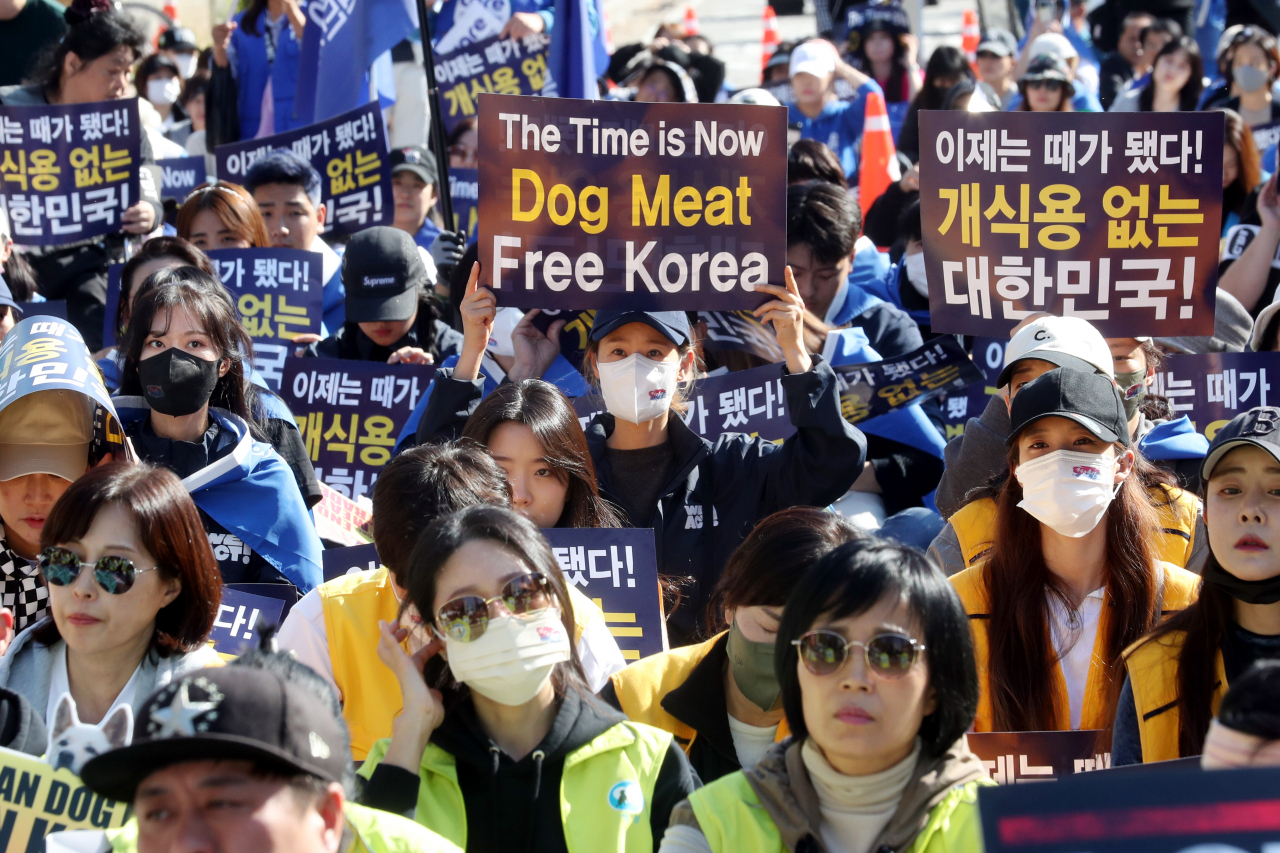Seoul to push through bill to ban dog meat consumption
By Lee JaeeunPublished : Nov. 17, 2023 - 15:31

The South Korean government and the ruling People Power Party on Friday agreed to introduce, before the end of this year, a special act to end dog meat consumption in Korea by 2027.
In a special consultative meeting at the National Assembly, the Yoon Suk Yeol administration and ruling party officials agreed to push for the passage of an anti-dog meat bill banning breeding and slaughter of dogs, as well as dog meat delivery and sales.
Under the legislation, farms, butcheries, distribution companies and restaurants would be required to submit proof to local governments that they do not engage in dog breeding or other related works, and a proposed timeline for ending dog meat activities. Violators would be subject to criminal punishment.
A grace period of three years will be given to farmers, restaurant owners and others involved in the dog meat industry.
"There have been many serious problems, such as animal cruelty and food hygiene. Also, the issue has deepened social conflict for years," People Power Party Policy Steering Committee chief Rep. Yu Eui-dong told reporters after the meeting.
"We will put an end to social conflict and controversy over dog meats by enacting the special act.”
After the act is introduced, lawmakers will have to vote on it in the National Assembly.
Over the course of this year, similar bills have been proposed by both the ruling People Power Party and the main opposition Democratic Party of Korea.
Meanwhile, the government plans to mitigate the impact of the special act on the industry by providing financial support to help stakeholders and businesses that would have to relocate or shut down.
“The ministry will strive to resolve controversies caused by the issue as early as possible,” Agriculture Minister Chung Hwang-keun said after the meeting.
Around 50 representatives of a national dog meat farmers association expressed their outrage in front of the National Assembly following the announcement. The protesters held a banner that read, “The government and ruling party are threatening our right to live.”
About 3,500 farms in Korea had bred dogs for food as of last year. They supply dog meat to around 3,000 restaurants across the country, according to the dog meat industry.
Dog meat stew, called boshintang in Korean, is no longer popular among younger generations, but some older Koreans still consider it a delicacy, particularly during the summer months.
A Gallup poll from last year showed that 64 percent of people aged 18 and older had a negative view of dog meat consumption, an increase from the same poll in 2015, when 44 percent were against it.








![[Weekender] How DDP emerged as an icon of Seoul](http://res.heraldm.com/phpwas/restmb_idxmake.php?idx=644&simg=/content/image/2024/04/25/20240425050915_0.jpg&u=)
![[KH Explains] No more 'Michael' at Kakao Games](http://res.heraldm.com/phpwas/restmb_idxmake.php?idx=644&simg=/content/image/2024/04/28/20240428050183_0.jpg&u=20240428180321)









![[Herald Interview] Mistakes turn into blessings in street performance, director says](http://res.heraldm.com/phpwas/restmb_idxmake.php?idx=652&simg=/content/image/2024/04/28/20240428050150_0.jpg&u=20240428174656)
